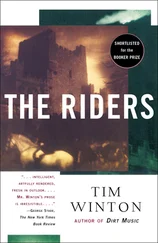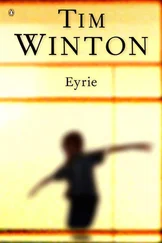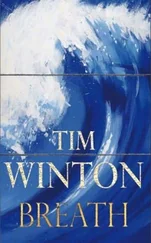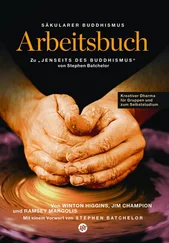How did you find … us? she said, trying to neutralize her tone.
Oh, the girls on the switch. They remembered the street, though none of them knew the number of the house. Once I found the street it was easy. Seems everybody knows this place. They were all talking about some woman with a tent? Anyway I found it.
Rose pulled the blankets around her.
You’ve been dark on me, Rose.
Congratulations on the poem. Who took it, that poonce from the university?
Oh, Rose, show some taste, some decorum.
I said congratulations, didn’t I?
You’re not the same girl I heard on the switch last year.
Well, I know about Earl Grey tea now and I’ve read Rimbaud. And his … imitators.
Nasty, nasty.
Don’t bloody patronize me.
Jesus, Rose, it’s my big day. I’m asking you out to a do. I’ve cracked it at last. They’re welcoming us in.
That mob? I thought you were avante garde or whatever.
Cmon, Rose. Be nice.
Nice is an ugly word.
You’re a sharp girl, Rose.
And I type like a demon.
Oh, don’t sulk. Cmon love. We’ll drink champagne and lose ourselves. I’m sorry for barging in on your … hide-away. Look pretty for me, alright? I’ll be by at eight.
There was a photographer from the Daily waiting on the steps of the Dalkeith mansion when Toby and Rose arrived starched to the gills, and the coincidence was not lost on Rose.
Who are these people, anyway?
Oh, uni people, old money, the usual literary establishment.
What’s the editor’s name again?
George Headley. He’s edited Riverside since the ivy started growing.
This must be important to you.
Ah, she loves me.
The door opened. Rose felt her shoulders sag in fear.
Toby Raven, said Toby to the big silver man.
And friend, said Rose.
Welcome to our little nest. Come in my boy.
Rose crept in behind Toby. A jazz combo played in the hallway. A buffet table filled the dining room and forced its trestled way into the huge, dark, heavy panelled livingroom. Leather furniture, jarrah bookcases, elephant’s feet, hatstands, squirish paintings on the wall squeezed Rose into her dress. From the huge windows she saw the slick lawns, the gleaming backs of cars, and below it all the lightmoving river.
Out in the sunroom men had gone into a huddle, and spotting them, Toby bolted their way. Rose did her best to seem unhurried and unflustered. She found the wives and girlfriends in the kitchen and was immediately loaded up with a tray of beer and Porphyry Pearl.
Run that past them, would you dear? An old pinkhaired woman said.
Rose stood among the men and heard Toby giggling nervously. She wanted to go. She was thinking of ways already.
Ah yairs, someone was saying, Katherine and Henrietta are alright in their way, but what we need is more Tobys, don’t you think?
Harumph!
Yairs.
My oath.
I mean I particularly like that bit where you liken the fallen beast to the Korean soldier.
Toby looked ashen: Um?
Ah yairs, and the stuff about the old barbed wire bridle.
Rose looked at Toby and sensed him knowing it. His lips gone almost brown in contrast to his face. He began to giggle. He’s never written a poem about barbed wire or war in his life, thought Rose. He’s a gossip columnist who writes sex poems.
Thought of a funny, Raven?
Toby tittered in some air: Did you like the bit where he whispers Homer in her ear?
General silence, then a slow rumble of amusement.
That’s it, thought Rose, knowing Toby knew it too. It’s a balls-up. They’ve got the wrong man, wrong poem. She wanted to go now. She couldn’t bear to see him humiliated like this, but neither could she be seen with him. She felt it so clearly here of all places; she despised him as much as pitied him.
You should let us have some comic work, Raven, said George Headley.
Toby’s giggle mounted another sentence: Well, well, well, actually I’ve been thinking of some very comic, funny, funny material inspired only today. Rose, tell them about where you live. Tell them about the lady in the backyard who lives in a tent. Tell them about the slow boy you used to love.
Rose shook in sick surprise. Toby went on in desperation.
You see, fellows, I’m working up this grotesquerie about … well there’s this shopgirl and a famous writer and …
Short story?
Oh, oh, oh longer.
Sounds promising.
Tell them Rose. Tell them!
Rose dropped the tray, felt the shower of bubble and glass fizz as she went. She went past elephant’s feet and dinky triangle sandwiches, through the deep darkness of the house while poor desperate Toby called, Tell them about my poems! Men roared and whaled with laughter and Rose heard Toby’s terrible miserable giggle outside the front door, across the glittering lawns and down the street as she went coatless and blank into the cold. The river was down there, black and moving. The river.
 Silhouettes
Silhouettes 
Quick couldn’t get going again. After he got back with his family, he found that Cloudstreet had a hold on him, and though he couldn’t think why he should stay in the place, half falling down as it was now, empty of children and rarely the scene of much fun at all, with the old girl muttering to herself out in the tent half the night, the old man inside telling lies and glooming everyone up by trying to sound cheerful, Lon growing pimples and a snarl, Red with her beak always in a book confirming the frailties of Homo Sapiens, Elaine pinching her temples with a migraine and continuing a five year engagement with some bloke he’d never actually met, he kept his old room and helped out in the shop, drove the Chev which sounded these days like a chaffcutter, and watched the summer come, then autumn, winter, spring.
The kitchen floor kept him busy. One morning, the whole mob came down for breakfast and the floor had a list on it that caused the lighter chairs to slide down the hill into the stovefront and the sink. Quick got under the house with a couple of truck jacks to crank and pack it, but next day the slope was back. He jacked and packed three times, but each time the floor came back to an ideal walking surface for people with short left legs. In the end Red had the idea of nailing blocks on the floor and gluing chair and table legs to them on the down side, no slope, no sliding. In a week the old girl herself had taken on a new gait. She now walked more like a bosun than a sarmajor. The Lambs were a crook bunch to look at once they got their sealegs.
Fish lay on his bed with the crystal set, day and night. He said little. Sometimes he didn’t even come down to tea, and not even Lester could get him down. Oriel had lost power over him long ago, a defeat that you could read in her face every time Fish came shambling by.
Late in summer, Quick found the boat the old man had bought years ago, the one Fish and he had rowed from Freo when they were kids. It was still beached and upside down at Crawley, so he scraped it, patched it, caulked and painted it so that in the evenings he could row down to the narrows and put out lines for mulloway, flathead and bream. He was comfortable out there on the water, alone with the city lights and the quiet pressure of the outgoing tide. The river was a broad, muttering, living thing always suggesting things that kept his mind busy. Every important thing that happened to him, it seemed, had to do with a river. It was insistent, quietly forceful like the force of his own blood. Sometimes he thought of it as the land’s blood: it roiled with life and living. But at other moments, when a dead sheep floated past, when the water was pink with storm mud, when jellyfish blew up against the beaches in great stinking piles, Quick wondered if it wasn’t the land’s sewer. The city had begun to pile up over it as the old buildings went and the ugly towers grew. But it resisted, all the same, having life, giving life, reflecting it. On clear nights you could see lights in the hills and the scarp beyond the city. He remembered the wheatbelt, that great riverless domain, and recalled himself charging madly through the wheat. I was looking for this he thought. The river. Quick watched the few old battlers who still netted the river for a living, and it was from observing their silhouettes with pity and admiration that he came upon a job for himself. He’d supply the shop with fish! It was a good mile from Cloudstreet to the nearest fishmongers, and he’d seen all the Baits and Greeks moving in, these past few years, and the lengths those coves would go to just to buy a decent piece of fish. He went home and put the idea to Oriel who claimed it as one of her best, and the next day Quick was buying nets and setlines, looking out for a cheap seagull motor, and feeling pleased with himself. Actually everybody was happy. Quick felt like his own boss again, Oriel felt like everybody’s boss again, and everybody bossed. The fish sold. The shop prospered. Late of an evening, you’d see Sam Pickles down there, hat back on his head, gladstone bag in hand, weighing up a couple of pounds of crabs for himself. Geez, I forgot how much I miss the smell of fish every day, he’d say. I been in the city too long. I’m gunna up an orf one day, he’d say to nobody special. I’ll be orf like a shot.
Читать дальше
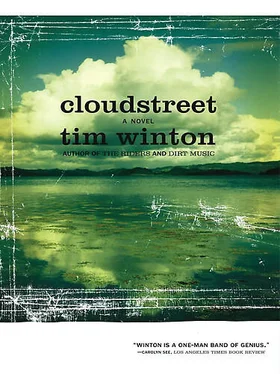
 Silhouettes
Silhouettes 

